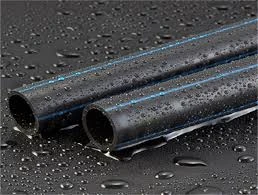jan . 02, 2025 07:34 Back to list
pvc pipe
The Versatility and Advantages of PVC Pipe
When it comes to plumbing, construction, and various industrial applications, one material has consistently proven its superiority polyvinyl chloride, commonly known as PVC. Since its introduction in the early 20th century, PVC pipe has become an essential component in many sectors thanks to its unique properties, durability, and cost-effectiveness. This article explores the vast advantages of PVC pipe, its various applications, and why it remains a popular choice in today's market.
Durability and Lifespan
One of the most significant benefits of PVC pipe is its remarkable durability. Unlike traditional materials such as metal or clay, PVC is resistant to corrosion, rust, and chemical degradation. This resilience enables PVC pipes to withstand harsh environmental conditions, making them ideal for outdoor and underground installations. With a lifespan that can exceed 50 years, PVC pipes offer longevity that reduces the need for frequent replacements, saving both time and money.
Lightweight and Easy to Install
Another advantage of PVC pipe is its lightweight nature. Compared to metal or concrete pipes, PVC pipes are substantially lighter, which simplifies transportation and installation processes. The reduced weight means that fewer labor resources are required for handling and installation, and it also minimizes transportation costs. PVC pipes are available in various diameters and lengths, making them adaptable to a wide range of projects, whether residential, commercial, or industrial.
Cost-Effective Solution
pvc pipe

In terms of cost, PVC pipe presents a highly economical solution for builders and contractors. The manufacturing process of PVC is efficient, leading to lower material costs. Furthermore, due to its longevity and low maintenance requirements, the overall lifetime cost of owning and operating PVC pipe systems is considerably lower than that of alternative materials. This economic advantage makes PVC an attractive choice for both large-scale infrastructure projects and small home renovations.
Versatility in Application
PVC pipe is used in a myriad of applications, showcasing its versatility. It is commonly employed in plumbing systems, irrigation, and drainage, as well as in the construction of electrical conduits. The chemical resistance of PVC also allows it to be utilized in the transport of various liquids and gases, ranging from potable water to hazardous waste. The adaptability of PVC pipe means it can meet the specific requirements of diverse industries, including agriculture, manufacturing, and construction.
Environmental Considerations
In recent years, environmental sustainability has become a crucial factor in material selection. PVC pipe has made strides in this area as it can be recycled, which helps reduce waste. Additionally, the energy used to produce PVC is lower compared to many alternative materials, making it a more environmentally friendly choice. New technologies have also advanced the recycling processes for PVC, allowing for greater sustainability in the lifecycle of the material.
Conclusion
The benefits of PVC pipe are clear durability, cost-effectiveness, ease of installation, versatility, and environmental sustainability. As industries continue to seek reliable and efficient solutions for plumbing, irrigation, and construction needs, PVC pipe remains a steadfast option. Whether for residential projects or large-scale infrastructure developments, PVC offers a combination of performance and value that solidifies its position as a material of choice in the modern world. With ongoing innovations and improvements, the future of PVC pipe looks promising, ensuring that it will continue to play a vital role in our infrastructure for years to come.
-
Durable PP Rigid Sheet: Lightweight, Chemical Resistant Solutions
NewsAug.21,2025
-
PVC Grey Sheet for Extraction: Chemical Resistant & Durable
NewsAug.19,2025
-
Durable PVC Pipe Fittings for Plumbing & Irrigation Needs
NewsAug.18,2025
-
HDPE Steel Belt Reinforced Spiral Corrugated Pipe | High Strength
NewsAug.17,2025
-
HDPE Pipe Fittings: Durable, Leak-Proof Solutions
NewsAug.16,2025
-
Premium CPVC Sheet: High-Temp & Chemical Resistant Solutions
NewsAug.15,2025

